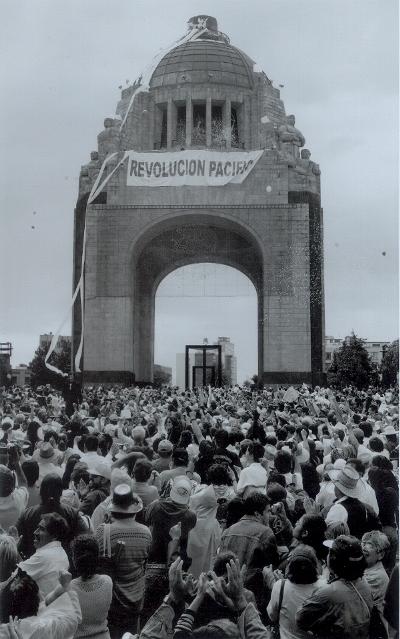Affect and its Effects: Queer Feminist Creative Resistance in the Americas
Date: November 2, 2011
Time: 3-5 p.m.
Speaker: Jasmine Rault
Location: Wilson Hall, Rm 2053
Abstract
This talk will explore the role of positive affect in contemporary feminist and queer scholarship, cultural production, media arts and activism in the hemispheric Americas (North, Central and South America). I am interested in the ways that certain modes of feeling come to galvanise feminist and queer work, serving communicative and community-building functions for subjects and politics excluded from public networks of communication and community. While recent scholarship in feminist and queer theory, based primarily in and on the United States, is characterized by a growing preoccupation with affect, it has tended to configure feelings like optimism, thrill and euphoria as uninteresting at best and hegemonic at worst, investing instead in feelings like melancholy, shame and depression as sources for new generations of critical, creative and political work. I want to suggest that situating negative affect as the primary medium of feminist queer communication could be the result of a crypto-nationalist and ethnocentric critical framework that my work endeavours to expand. Indeed, this limited framework seems to discourage scholars from looking outside U.S. cultural contexts or references and may repeat a distinctly modernist conceit, casting those whose political work revolves around the cultivation and circulation of positive affect as somehow behind, pre-modern and critically underdeveloped. Focusing on positive affect allows us to recognize and take seriously the central mediating role that feelings like hope, celebration and utopia play in the transnational developments of anti-normative queer and feminist grassroots activism, artistic and intellectual culture throughout the Americas.
My research is inspired by several examples of queer feminist works which have emerged since 2002, and compelled by their consistent commitment to unlikely feelings of hope and utopic aspiration. The ‘creative resistance’ in my title refers first to the Resistencia Creativa movement, spearheaded by the feminist queer activist and artist, Jesusa Rodríguez in Mexico City, but also to works such as: the ambitious educational, media and political projects organized by Colectivo León Zuleta ¡Por la emancipación Social y Sexual! in Bogotá, Colombia; the hybridized cultural creations of the Argentine-Mexican, queer-core cumbia band, Kumbia Queers; the Toronto-Pride protest parties for Take Back The Dyke in 2010 and Stonewall TO in 2011; as well as the actions organized by the annual Pervers/Cité festival (dedicated to “The Underside of Pride”) in Montreal, Quebec. I propose that a sort of euphoric utopian striving has reinvigorated feminist and queer efforts with a consistency that cannot be contained or characterised by national borders and cannot be taken seriously by current scholarship that casts such positive affect as delusional or normative. I want to suggest that our critical frameworks need to be reformulated to recognise the positive affective valences that reveal these efforts as a movement of transnational anti-normative mediation rather than marginal, isolated or nationally specific phenomena.
Click here for more information about the Women and Gender Studies Research Seminar.

